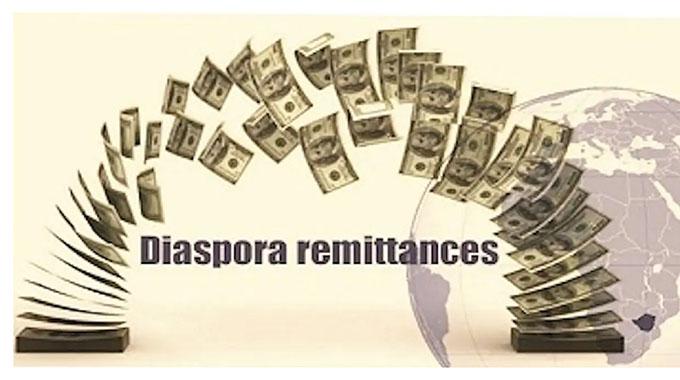News / National
Zimbabwe diaspora remittances up 17%
18 Jul 2024 at 05:41hrs |
0 Views

In the first quarter of the year, diaspora remittances to Zimbabwe surged by 17%, reaching US$490 million compared to US$420 million during the same period in 2023. This increase in remittances is seen as crucial for Zimbabwe's economy, particularly since it operates largely on the United States dollar.
Economic analysts, including Marlon Gwadu, highlighted that these remittances are vital as they bolster liquidity in banks and mobile money platforms. This liquidity enables financial institutions to provide loans to businesses and individuals, thereby stimulating economic activity. Gwadu emphasized that increased liquidity also expands the range of financial products available, such as mortgages and investment opportunities.
Stevenson Dlamini noted that the influx of remittances has led to higher deposit volumes in banks and increased investments in microfinance institutions, supporting small businesses and income-generating activities.
Furthermore, analysts like Batsirai Matsika underscored the role of fintech in facilitating financial inclusion, allowing traditionally unbanked or underbanked populations in Zimbabwe to access financial services. Matsika stressed the importance of financial institutions continuing to innovate and adapt to meet the evolving needs of Zimbabweans.
Overall, the rise in diaspora remittances is viewed as a positive development for Zimbabwe's economy, providing stability and supporting growth across various sectors.
Economic analysts, including Marlon Gwadu, highlighted that these remittances are vital as they bolster liquidity in banks and mobile money platforms. This liquidity enables financial institutions to provide loans to businesses and individuals, thereby stimulating economic activity. Gwadu emphasized that increased liquidity also expands the range of financial products available, such as mortgages and investment opportunities.
Furthermore, analysts like Batsirai Matsika underscored the role of fintech in facilitating financial inclusion, allowing traditionally unbanked or underbanked populations in Zimbabwe to access financial services. Matsika stressed the importance of financial institutions continuing to innovate and adapt to meet the evolving needs of Zimbabweans.
Overall, the rise in diaspora remittances is viewed as a positive development for Zimbabwe's economy, providing stability and supporting growth across various sectors.
Source - newsday
Join the discussion
Loading comments…































